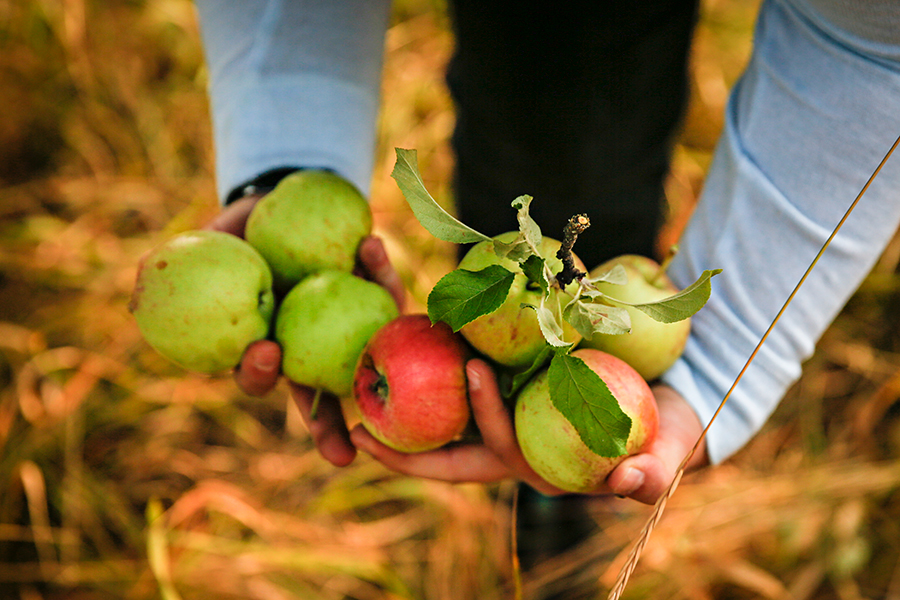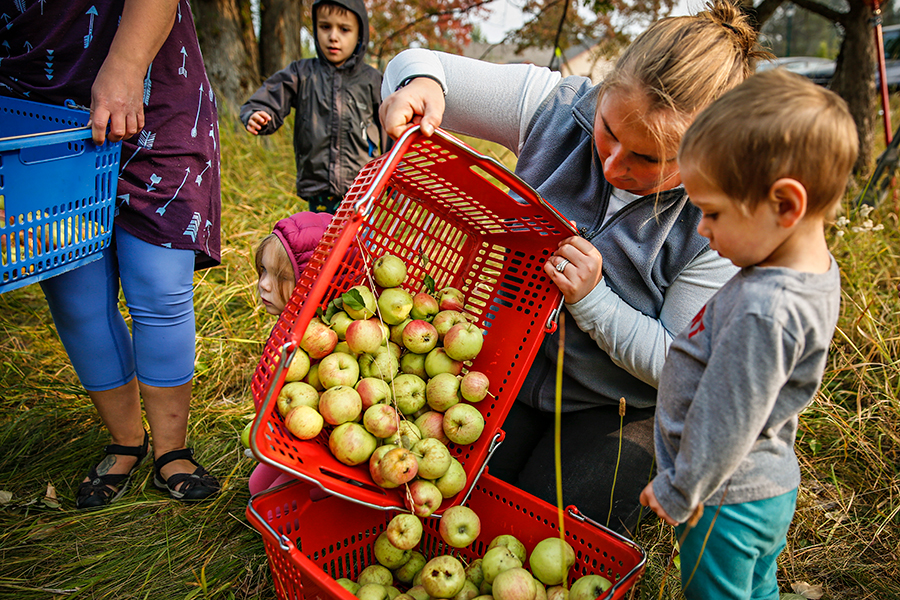North Valley Food Bank Harvesting Apples to Offer Customers, Lessen Bear Attractants
FWP also administers Facebook page to reduce human-bear conflicts by connecting volunteer fruit pickers and property owners
By Myers Reece
At a panel discussion at Free the Seeds! in March that included a farmer and representative from Montana Fish, Wildlife and Parks, North Valley Food Bank Director of Operations Lauren Jarrold took note of the intersecting agriculture-wildlife management issue of unharvested crops and hungry bears.
That concern further crystallized when Jarrold was contacted by the City of Whitefish to discuss options for the city’s fruit trees, which annually produce scores of apples that bears find particularly tasty and accessible.
Out of those conversations grew the first coordinated effort between North Valley Food Bank (NVFB) and the city to pick apple trees on city property, providing a robust source of fresh fruit for food bank customers while relieving the city of bear attractants.
“It’s great for us because we have a lot of produce for the customers, and it’s great for the city because they get the fruit off the trees,” Jarrold said.
While FWP isn’t officially a partner, NVFB’s project bolsters the agency’s annual gleaning-awareness efforts, which includes its grizzly bear conflict management team running a Facebook page called Flathead Fruit Gleaning to connect people who either want to pick fruit or have their trees picked in order to reduce human-bear conflicts.
There’s also a new Facebook group called Lincoln County Harvest Share that serves a similar purpose for Lincoln County. The Flathead Fruit Gleaning page also welcomes participants from the Swan Valley into the Eureka area.
Beginning late summer into fall, FWP grizzly bear managers say “bears start to come back down from feeding on berries in the mountains and at this point their hyperphagia really kicks in. They are opportunistic and looking for any food source to pack on the calories.”
Wildlife officials say “the most common human-bear conflicts involve unsecured food attractants,” and if a bear doesn’t receive a food reward, it’s far less likely to show up in the first place or return. This is good for both humans and bears.
“Once a bear is food-trained, it is often impossible to un-train them,” FWP’s “Bear Aware” webpage states. “That is why biologists so often say a fed bear is a dead bear.”

Attractants other than fruit trees include household garbage, pet and livestock food, birdfeeders, livestock, compost, gardens, outdoor food cookers and beehives.
As of Sept. 18, more than 20 NVFB volunteers, mostly families with kids, had picked about 200 pounds of apples from 14 city trees and a number of private trees at the property owners’ request. Jarrold expected that poundage to double over the weekend and continue growing, while anticipating that city plum trees would also be harvested.
Jarrold said the food bank is thinking about working with a local church to make applesauce, in addition to offering whole apples fresh. Volunteers are also picking up all the fallen fruit on the ground, and unusable apples are composed.
“We don’t throw any food refuse away,” Jarrold said.
Volunteers interested in picking fruit or property owners interested in having their trees picked can contact Jarrold (406) 862-5863 or email her at [email protected].
“If people are interested and there’s still fruit on trees, we can keep connecting people until the harvest season is over,” she said. “There’s no specific end date to project, just when the trees are harvested and the fruit is no longer good for the customers.”